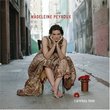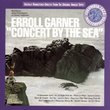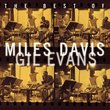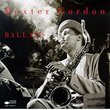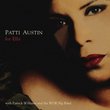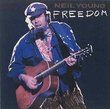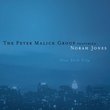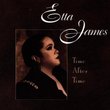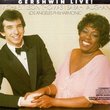| All Artists: Abbey Lincoln Title: You Gotta Pay the Band Members Wishing: 0 Total Copies: 1 Label: Polygram Records Original Release Date: 10/22/1991 Release Date: 10/22/1991 Genres: Jazz, Pop, Broadway & Vocalists Styles: Modern Postbebop, Vocal Jazz, Bebop, Vocal Pop, Traditional Vocal Pop Number of Discs: 1 SwapaCD Credits: 1 UPCs: 731451111020, 044008430865, 731451111044 |
Search - Abbey Lincoln :: You Gotta Pay the Band
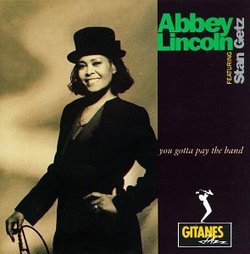 | Abbey Lincoln You Gotta Pay the Band Genres: Jazz, Pop, Broadway & Vocalists
![header=[] body=[This CD is available to be requested as disc only.]](/images/attributes/disc.png?v=a4e11020) ![header=[] body=[This CD is available to be requested with the disc and back insert.]](/images/attributes/disc_back.png?v=a4e11020) ![header=[] body=[This CD is available to be requested with the disc and front insert.]](/images/attributes/disc_front.png?v=a4e11020) ![header=[] body=[This CD is available to be requested with the disc, front and back inserts.]](/images/attributes/disc_front_back.png?v=a4e11020) |
Larger Image |
CD DetailsSimilarly Requested CDs
|
Member CD ReviewsReviewed on 11/23/2008... Review by Scott Yanow
Stan Getz is featured on one of his final recordings on this excellent Abbey Lincoln CD; Getz's cool tenor fits in very well with Lincoln's voice, making one wish that they had met up previously. With pianist Hank Jones, bassist Charlie Haden, drummer Mark Johnson, and (on two songs) Maxine Roach's viola completing the group, it is not surprising that Lincoln sounds typically inspired. Actually, her version of "Brother, Can You Spare a Dime?" is a bit of a misfire with its dated lyrics (which should have been modified and altered to fit a female). However, "Bird Alone," Freddie Hubbard's "Up Jumped Spring" (given lyrics by Lincoln), and five of her originals more than compensate. Recommended. CD ReviewsA good introduction to Ms. Lincoln M. Anderson | Salt Lake City, UT | 08/25/2000 (3 out of 5 stars) "I'd really like to give this record 3 ½ stars. The reason is that although there are some really good jazz songs here, like "Bird Alone", "I'm In Love", and "And How I Hoped For Your Love", there are a couple of clunkers, notably "You Made Me Funny" and "When I'm Called Home". That said, there are a few other things you should know. The band, for instance, is phenomenal, and the tenor sax of Stan Getz is perfect. The fact that there are only 10 songs made me feel a little cheated, certainly they had room for 12 or 14. And Ms. Lincoln is well into her 60s; you can hear the limitations that age has brought to her voice range." Passionate, personal, and professional. Mary Whipple | New England | 08/04/2005 (4 out of 5 stars) "A group of consummate pros works here with Abbey Lincoln to produce a jazz album that is polished but sometimes playful, and emotional but never careless, with six songs written by Lincoln. Stan Getz on sax is at the top of his form in what turned out to be his last recorded album. Hank Jones on piano adds a sense of romance and sometimes mystery with his frequent (wonderful) solos, and Charlie Haden on bass and Mark Johnson on drums provide the beat. On two songs, "Bird Alone" and "A Time for Love," Maxine Roach adds a haunting viola.
Lincoln's voice, clearly influenced by Billie Holiday and Bessie Smith, may be an acquired taste--reedy, sometimes a little bit "blatty," and lacking sweetness--but she is an actress with a song, and her passion and oneness with her lyrics give her a unique sound that enables her to convey the essence of the music, becoming an interpreter and poet rather than simply a singer. "Bird Alone" is a song of mystery, "Brother, Can You Spare a Dime," a song of sorrow, and "You Made Me Funny," a "talk-story"--an eerily spoken Lincoln soliloquy, full of contrasts. With "And How I Hoped for Your Love," she branches out into a bossa nova beat, while the magnificent "When I'm Called Home" is a wrenching ballad of loss and missed opportunities. Lincoln sings many of these songs in a minor key, while the solos by Getz and Hank Jones are often more upbeat and bring the music into happier realms in major keys. With a timbre the same as that of Getz's sax, Lincoln's voice becomes one with the sounds of her musicians and allows all of them to soar. n Mary Whipple " |

 Track Listings (10) - Disc #1
Track Listings (10) - Disc #1